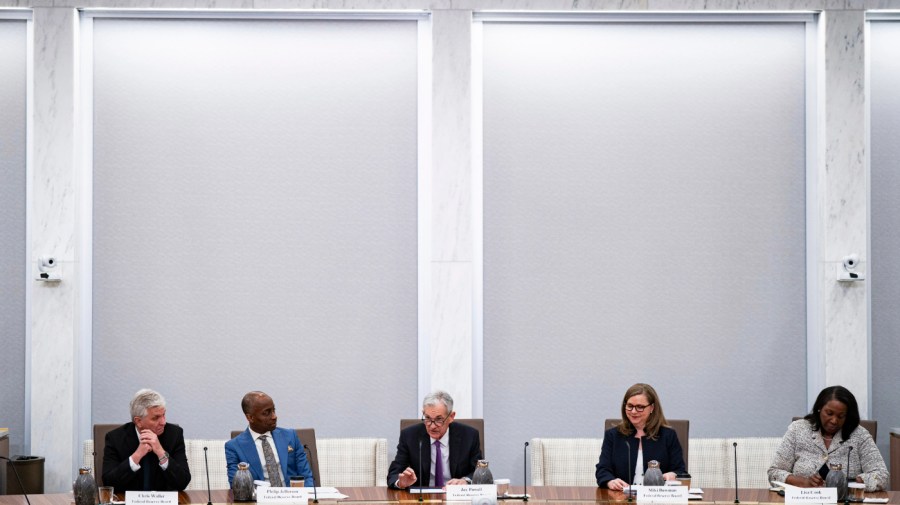We should all rage against the dying of the Fed

Between the Jeffrey Epstein files, unleashing the National Guard in Washington D.C., masked ICE agents snatching law-abiding citizens off the streets, the U.S. government’s new stake in privately-owned Intel, the crisis in Gaza, capitulation to Vladimir Putin and DOGE cuts, my cup of President Trump outrages runneth over.
But now, he has crossed the economic Rubicon. Trump’s attempted firing of fed governor Lisa Cook is a power grab beyond imagination.
If successful, this illegal act will stack the powerful seven-member board with four MAGA loyalists. That is enough to fire all 12 Federal Reserve Bank presidents when, by law, their tenures come before the board for a vote in March of 2026, just seven months away.
This will give Trump total control of the Federal Open Market Committee — the 12-member committee of seven governors and five Federal Reserve Bank presidents that establishes and carries out the nation’s monetary policy.
It is difficult to overstate the negative reverberations to flow from this one unlawful dismissal if it is carried out.
First, monetary policy will shift from the Fed, where it has been lodged for over 100 years, to the White House. Second, the White House will call for an immediate cut in short-term interest rates. It already has.
This will be followed by a brief sugar high for the economy with a boost in housing activity and a spike of one or more asset classes. Think crypto (as if that were not juiced enough already).
Like all asset bubbles, a bust will follow along the lines of the Financial Crisis of 2008, though worse. You think bailing out the banks and the auto companies was distasteful? Wait until you see the price tag for bailing out crypto bros such as Eric and Donald Trump Jr., and the Winklevoss twins.
By this time, world markets will have lost trust in the White House-dominated Fed. The role of the dollar as the world’s reserve currency will be finished.
Gone will be the days of the Fed’s steady, if imperfect, hand on the supply of money. The cost of servicing the national debt will soar. The Fed’s dual mandate of stable prices and full employment will be but a sad joke as it scrambles to carry out political instructions coming from the White House.
If we are fortunate, someone like Paul Volcker will come along to restore order to the markets and to the economy. If we are not lucky, a replay of the Great Depression is in the cards.
Much has been made of Trump’s ham-handed attempt at removing Fed Chairman Jerome Powell. Trump called Powell every name a poorly educated fifth grader can think of. Since that did not work, Trump enlisted a bureaucrat he’d recently installed to conjure up fraud accusations against Powell involving a Fed building renovation that was underway.
Recall the cringeworthy news coverage of Trump’s visit to the Fed construction worksite. Billed as a fact-finding visit, it turned out to be a poorly executed ambush of Powell by the frustrated president. Trump reached into his pocket to produce evidence of fraud only to have Powell politely stuff the inaccurate document back in the president’s face.
Much is made of the value of the Fed being independent from the demands of an executive. Imagine for a moment that the Fed was a part of the executive branch and Chairman Powell had to endure Trump cabinet meetings. As each cabinet secretary sought to out-fawn the previous one in obsequious praise of the president, Powell would steal the show simply by keeping quiet.
As a lawyer, a former Fed official and an academic, not a day goes by that I am not offended by Trump’s attacks on the rule of law, our financial and regulatory institutions and our universities.
Most importantly, I am a citizen. It is Trump’s attacks on the citizenry that are most appalling.
Chairman Powell demonstrated that Trump’s actions are vindictive bullying. We have nothing to fear from Trump. What I fear most is the outrage of my fellow citizens being muted. We cannot let that happen.
Cornelius Hurley is a former official of the Federal Reserve Board who is currently teaching financial law at Boston University School of Law.